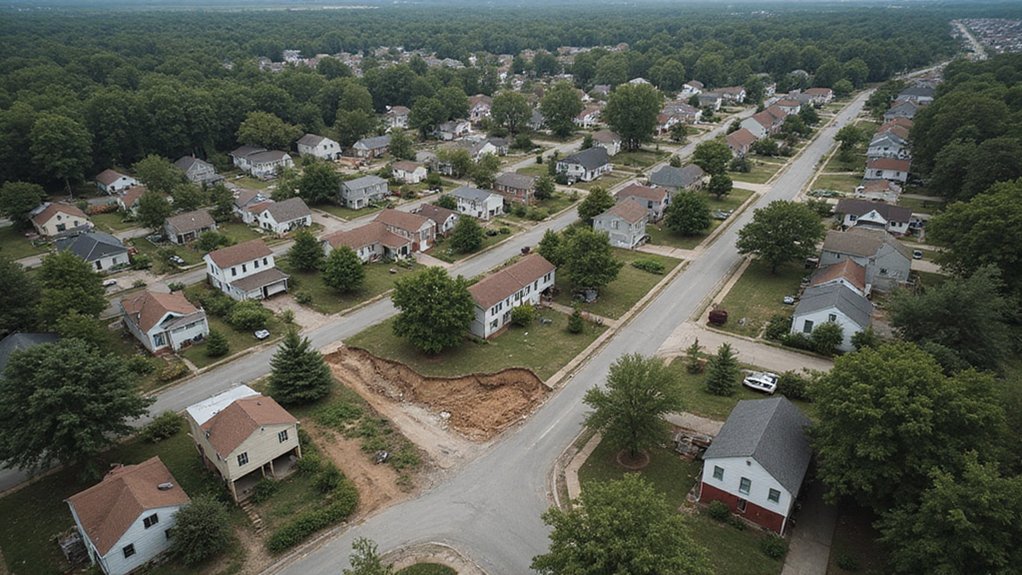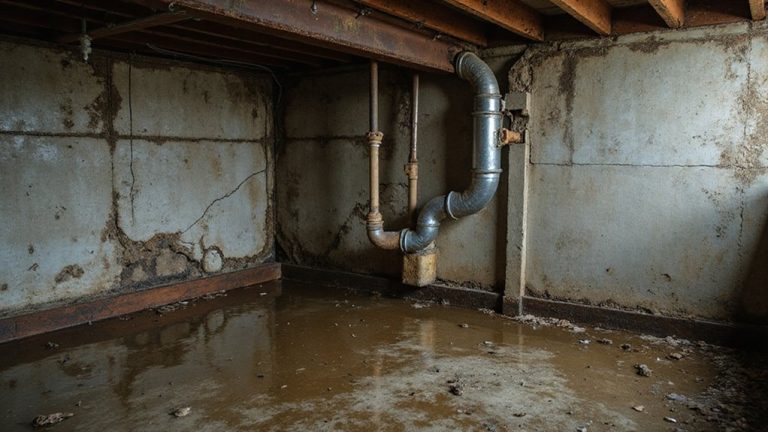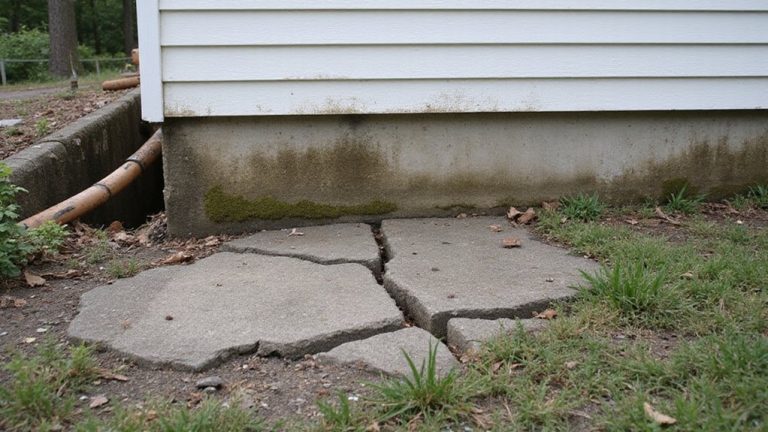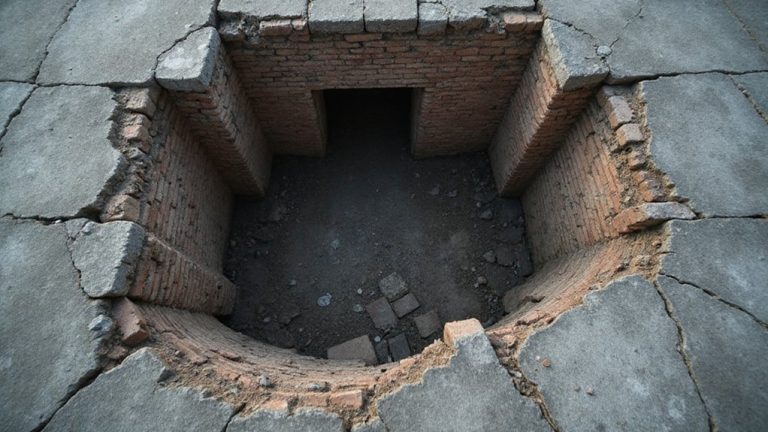As a Cleveland homeowner, you’ve likely noticed the unique challenges your home’s foundation faces. The region’s clay-heavy soil and high water table can wreak havoc, causing cracks, uneven floors, and other structural issues. While it’s easy to feel frustrated, understanding the underlying geology is the first step towards effective prevention and repair. By delving deeper into the factors behind Cleveland’s foundation problems, you’ll be better equipped to safeguard your home’s stability.
Geological Characteristics of the Cleveland Region
To understand why Cleveland homes can be prone to foundation problems, we must first examine the geological characteristics of the region.
The Cleveland area sits atop glacial till, which is a mixture of sand, silt, clay, and gravel left behind by the retreating glaciers of the last ice age. This unique rock formation history makes the soil in Cleveland highly susceptible to expansion and contraction, leading to foundation shifts and cracks.
Homeowners in the area must be aware of these geological factors and take proactive measures to guarantee the stability of their home’s foundation. Foundation experts in Cleveland recommend regular inspections to identify and address potential soil-related structural issues early.
Impact of Clay-Based Soil on Foundation Stability
One of the primary reasons Cleveland homes are prone to foundation problems is the area’s clay-based soil. This soil type is highly expansive, meaning it swells considerably when it absorbs moisture and shrinks as it dries out.
The seasonal moisture fluctuations in the Cleveland climate exacerbate this issue, causing the soil to constantly expand and contract. This cyclic movement can exert tremendous pressure on a home’s foundation, leading to cracks, uneven settling, and other structural problems.
Homeowners must be vigilant in monitoring their foundation and addressing any issues promptly to maintain the integrity of their homes. Foundation anchors and steel braces can provide critical support to mitigate the damage caused by expansive clay soils and prevent further structural deterioration.
Role of the High Water Table in Foundation Issues
While the expansive clay soil is a significant factor, the high water table in the Cleveland area also contributes to foundation issues for many homeowners.
When the water table rises, it can saturate the soil, causing it to swell and exert upward pressure on the foundation. This pressure can lead to cracks, uneven settling, and other structural problems.
Water table fluctuations are common in the region, and homeowners must be vigilant in monitoring soil saturation levels to address issues before they become severe. Understanding the role of the water table is essential for maintaining a stable foundation in Cleveland.
Seasonal Changes and Their Effect on Foundation Movement
As the seasons change throughout the year, the water table in the Cleveland area often fluctuates, causing the soil to expand and contract. During the warmer months, the soil absorbs more moisture, leading to expansion.
When temperatures drop in the winter, the ground freezes, causing the soil to contract. This continuous cycle of expansion and contraction can put significant stress on your home’s foundation, leading to cracks, uneven settling, and other structural issues.
Addressing seasonal foundation movement requires proactive measures to monitor and maintain the stability of your home’s foundation.
Common Types of Foundation Damage in Cleveland Homes
Cleveland homeowners often encounter a variety of concerning foundation problems, each with its own unique causes and impacts.
One of the most common types of damage is settling cracks, which can appear in walls, floors, and even the foundation itself. These cracks are often a result of soil movement or poor construction, and they can worsen over time, potentially leading to more serious structural issues.
Another common problem is uneven floors, which can be caused by foundation settling or heaving. This can make a home feel unstable and uncomfortable, and it may also indicate more significant foundation problems.
Recognizing the Signs of Foundation Problems
Recognizing the signs of foundation problems is key to addressing them early on. Look for uneven floor surfaces, as this could indicate your foundation has shifted.
Additionally, check for cracks in your drywall, which may signal foundation movement. Don’t ignore these warning signs – they could lead to more serious and costly issues down the road.
With early detection and prompt action, you can get your home’s foundation back on solid ground. Remember, addressing foundation problems promptly is essential to maintaining the structural integrity and value of your Cleveland home.
Importance of Proactive Foundation Maintenance
Proactively maintaining your home’s foundation is crucial to preservising its structural integrity and avoiding costly repairs down the line. Regular routine inspections and professional assessments can help identify potential issues before they escalate. Catching problems early allows for timely and cost-effective solutions, preventing major damage.
Don’t wait until it’s too late – be proactive in caring for your home’s foundation. Small cracks or shifts may seem insignificant, but they could signify bigger problems lurking beneath the surface. Take an active role in preserving your investment and ensuring your home remains safe and sturdy for years to come.
Effective Foundation Repair Methods for Cleveland Homeowners
As a Cleveland homeowner, you’ll be relieved to know there are several effective methods available to address foundation issues.
First, a professional inspector can thoroughly inspect your foundation components to identify any structural problems. Based on their evaluation, they can recommend the most suitable repair options, such as foundation underpinning, wall stabilization, or slab jacking. These techniques can help secure your home, prevent further damage, and preserve the integrity of your foundation.
Frequently Asked Questions
Can Foundation Problems Affect Home Resale Value?
Foundation problems can substantially impact your home’s curb appeal and property value. Major issues can deter potential buyers and reduce your sale price. Addressing foundation issues immediately is critical to maintain your home’s worth and appeal.
How Long Does Foundation Repair Typically Take?
The foundation assessment timeline usually takes 1-2 weeks, while the actual repair project can take 2-4 weeks. The length depends on the complexity of your home’s foundation issues and the repair work required.
Do I Need a Permit for Foundation Repair Work?
Yes, you’ll typically need a permit for DIY foundation repair. It’s best to get a professional foundation inspection first to guarantee the work is done right and meets local codes. Don’t risk further damage without the proper approvals.
What Are the Common Signs of Foundation Settling?
You may notice uneven floors and cracked drywall, which can indicate your foundation’s settling. These signs shouldn’t be ignored, as they could lead to bigger issues if not addressed promptly.
How Much Does Foundation Repair Usually Cost in Cleveland?
Foundation repair in Cleveland typically costs $3,000 to $15,000, depending on the extent of the work needed. The availability of local contractors and other factors can considerably influence the final price you’ll pay.



